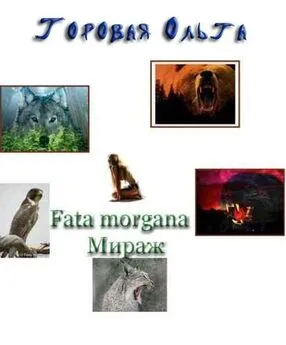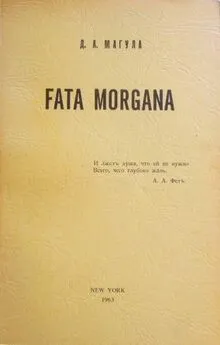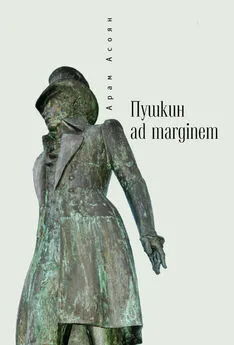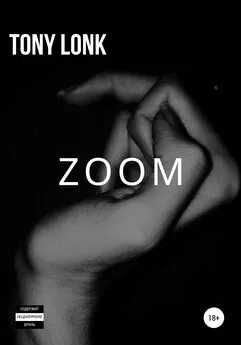Toni Morrison - Sula
- Название:Sula
- Автор:
- Жанр:
- Издательство:неизвестно
- Год:неизвестен
- ISBN:нет данных
- Рейтинг:
- Избранное:Добавить в избранное
-
Отзывы:
-
Ваша оценка:
Toni Morrison - Sula краткое содержание
Sula - читать онлайн бесплатно полную версию (весь текст целиком)
Интервал:
Закладка:
It was not really Edna Finch’s ice cream that made them brave the stretch of those panther eyes. Years later their own eyes would glaze as they cupped their chins in remembrance of the inchworm smiles, the squatting haunches, the track-rail legs straddling broken chairs. The cream-colored trousers marking with a mere seam the place where the mystery curled. Those smooth vanilla crotches invited them; those lemon-yellow gabardines beckoned to them.
They moved toward the ice-cream parlor like tightrope walkers, as thrilled by the possibility of a slip as by the maintenance of tension and balance. The least sideways glance, the merest toe stub, could pitch them into those creamy haunches spread wide with welcome. Somewhere beneath all of that daintiness, chambered in all that neatness, lay the thing that clotted their dreams.
Which was only fitting, for it was in dreams that the two girls had first met. Long before Edna Finch’s Mellow House opened, even before they marched through the chocolate halls of Garfield Primary School out onto the playground and stood facing each other through the ropes of the one vacant swing (“Go on.” “No. You go.”), they had already made each other’s acquaintance in the delirium of their noon dreams. They were solitary little girls whose loneliness was so profound it intoxicated them and sent them stumbling into Technicolored visions that always included a presence, a someone, who, quite like the dreamer, shared the delight of the dream. When Nel, an only child, sat on the steps of her back porch surrounded by the high silence of her mother’s incredibly orderly house, feeling the neatness pointing at her back, she studied the poplars and fell easily into a picture of herself lying on a flowered bed, tangled in her own hair, waiting for some fiery prince. He approached but never quite arrived. But always, watching the dream along with her, were some smiling sympathetic eyes. Someone as interested as she herself in the flow of her imagined hair, the thickness of the mattress of flowers, the voile sleeves that closed below her elbows in gold-threaded cuffs.
Similarly, Sula, also an only child, but wedged into a household of throbbing disorder constantly awry with things, people, voices and the slamming of doors, spent hours in the attic behind a roll of linoleum galloping through her own mind on a gray-and-white horse tasting sugar and smelling roses in full view of a someone who shared both the taste and the speed.
So when they met, first in those chocolate halls and next through the ropes of the swing, they felt the ease and comfort of old friends. Because each had discovered years before that they were neither white nor male, and that all freedom and triumph was forbidden to them, they had set about creating something else to be. Their meeting was fortunate, for it let them use each other to grow on. Daughters of distant mothers and incomprehensible fathers (Sula’s because he was dead; Nel’s because he wasn’t), they found in each other’s eyes the intimacy they were looking for.
Nel Wright and Sula Peace were both twelve in 1922, wishbone thin and easy-assed. Nel was the color of wet sandpaper—just dark enough to escape the blows of the pitch-black truebloods and the contempt of old women who worried about such things as bad blood mixtures and knew that the origins of a mule and a mulatto were one and the same. Had she been any lighter-skinned she would have needed either her mother’s protection on the way to school or a streak of mean to defend herself. Sula was a heavy brown with large quiet eyes, one of which featured a birthmark that spread from the middle of the lid toward the eyebrow, shaped something like a stemmed rose. It gave her otherwise plain face a broken excitement and blue-blade threat like the keloid scar of the razored man who sometimes played checkers with her grandmother. The birthmark was to grow darker as the years passed, but now it was the same shade as her gold-flecked eyes, which, to the end, were as steady and clean as rain.
Their friendship was as intense as it was sudden. They found relief in each other’s personality. Although both were unshaped, formless things, Nel seemed stronger and more consistent than Sula, who could hardly be counted on to sustain any emotion for more than three minutes. Yet there was one time when that was not true, when she held on to a mood for weeks, but even that was in defense of Nel.
Four white boys in their early teens, sons of some newly arrived Irish people, occasionally entertained themselves in the afternoon by harassing black schoolchildren. With shoes that pinched and woolen knickers that made red rings on their calves, they had come to this valley with their parents believing as they did that it was a promised land—green and shimmering with welcome. What they found was a strange accent, a pervasive fear of their religion and firm resistance to their attempts to find work. With one exception the older residents of Medallion scorned them. The one exception was the black community. Although some of the Negroes had been in Medallion before the Civil War (the town didn’t even have a name then), if they had any hatred for these newcomers it didn’t matter because it didn’t show. As a matter of fact, baiting them was the one activity that the white Protestant residents concurred in. In part their place in this world was secured only when they echoed the old residents’ attitude toward blacks.
These particular boys caught Nel once, and pushed her from hand to hand until they grew tired of the frightened helpless face. Because of that incident, Nel’s route home from school became elaborate. She, and then Sula, managed to duck them for weeks until a chilly day in November when Sula said, “Let’s us go on home the shortest way.”
Nel blinked, but acquiesced. They walked up the street until they got to the bend of Carpenter’s Road where the boys lounged on a disused well. Spotting their prey, the boys sauntered forward as though there were nothing in the world on their minds but the gray sky. Hardly able to control their grins, they stood like a gate blocking the path. When the girls were three feet in front of the boys, Sula reached into her coat pocket and pulled out Eva’s paring knife. The boys stopped short, exchanged looks and dropped all pretense of innocence. This was going to be better than they thought. They were going to try and fight back, and with a knife. Maybe they could get an arm around one of their waists, or tear…
Sula squatted down in the dirt road and put everything down on the ground: her lunchpail, her reader, her mittens, her slate. Holding the knife in her right hand, she pulled the slate toward her and pressed her left forefinger down hard on its edge. Her aim was determined but inaccurate. She slashed off only the tip of her finger. The four boys stared open-mouthed at the wound and the scrap of flesh, like a button mushroom, curling in the cherry blood that ran into the corners of the slate.
Sula raised her eyes to them. Her voice was quiet. “If I can do that to myself, what you suppose I’ll do to you?”
The shifting dirt was the only way Nel knew that they were moving away; she was looking at Sula’s face, which seemed miles and miles away.
But toughness was not their quality—adventuresomeness was—and a mean determination to explore everything that interested them, from one-eyed chickens high-stepping in their penned yards to Mr. Buckland Reed’s gold teeth, from the sound of sheets flapping in the wind to the labels on Tar Baby’s wine bottles. And they had no priorities. They could be distracted from watching a fight with mean razors by the glorious smell of hot tar being poured by roadmen two hundred yards away.
In the safe harbor of each other’s company they could afford to abandon the ways of other people and concentrate on their own perceptions of things. When Mrs. Wright reminded Nel to pull her nose, she would do it enthusiastically but without the least hope in the world.
“While you sittin’ there, honey, go ’head and pull your nose.”
“It hurts, Mamma.”
“Don’t you want a nice nose when you grow up?”
After she met Sula, Nel slid the clothespin under the blanket as soon as she got in the bed. And although there was still the hateful hot comb to suffer through each Saturday evening, its consequences—smooth hair—no longer interested her.
Joined in mutual admiration they watched each day as though it were a movie arranged for their amusement. The new theme they were now discovering was men. So they met regularly, without even planning it, to walk down the road to Edna Finch’s Mellow House, even though it was too cool for ice cream.
Then summer came. A summer limp with the weight of blossomed things. Heavy sunflowers weeping over fences; iris curling and browning at the edges far away from their purple hearts; ears of corn letting their auburn hair wind down to their stalks. And the boys. The beautiful, beautiful boys who dotted the landscape like jewels, split the air with their shouts in the field, and thickened the river with their shining wet backs. Even their footsteps left a smell of smoke behind.
It was in that summer, the summer of their twelfth year, the summer of the beautiful black boys, that they became skittish, frightened and bold—all at the same time.
In that mercury mood in July, Sula and Nel wandered about the Bottom barefoot looking for mischief. They decided to go down by the river where the boys sometimes swam. Nel waited on the porch of 7 Carpenter’s Road while Sula ran into the house to go to the toilet. On the way up the stairs, she passed the kitchen where Hannah sat with two friends, Patsy and Valentine. The two women were fanning themselves and watching Hannah put down some dough, all talking casually about one thing and another, and had gotten around, when Sula passed by, to the problems of child rearing.
“They a pain.”
“Yeh. Wish I’d listened to mamma. She told me not to have ’em too soon.”
“Any time atall is too soon for me.”
“Oh, I don’t know. My Rudy minds his daddy. He just wild with me. Be glad when he growed and gone.”
Hannah smiled and said, “Shut your mouth. You love the ground he pee on.”
“Sure I do. But he still a pain. Can’t help loving your own child. No matter what they do.”
“Well, Hester grown now and I can’t say love is exactly what I feel.”
“Sure you do. You love her, like I love Sula. I just don’t like her. That’s the difference.”
“Guess so. Likin’ them is another thing.”
“Sure. They different people, you know…”
She only heard Hannah’s words, and the pronouncement sent her flying up the stairs. In bewilderment, she stood at the window fingering the curtain edge, aware of a sting in her eye. Nel’s call floated up and into the window, pulling her away from dark thoughts back into the bright, hot daylight.
They ran most of the way.
Heading toward the wide part of the river where trees grouped themselves in families darkening the earth below. They passed some boys swimming and clowning in the water, shrouding their words in laughter.
They ran in the sunlight, creating their own breeze, which pressed their dresses into their damp skin. Reaching a kind of square of four leaf-locked trees which promised cooling, they flung themselves into the four-cornered shade to taste their lip sweat and contemplate the wildness that had come upon them so suddenly. They lay in the grass, their foreheads almost touching, their bodies stretched away from each other at a 180-degree angle. Sula’s head rested on her arm, an undone braid coiled around her wrist. Nel leaned on her elbows and worried long blades of grass with her fingers. Underneath their dresses flesh tightened and shivered in the high coolness, their small breasts just now beginning to create some pleasant discomfort when they were lying on their stomachs.
Читать дальшеИнтервал:
Закладка:








